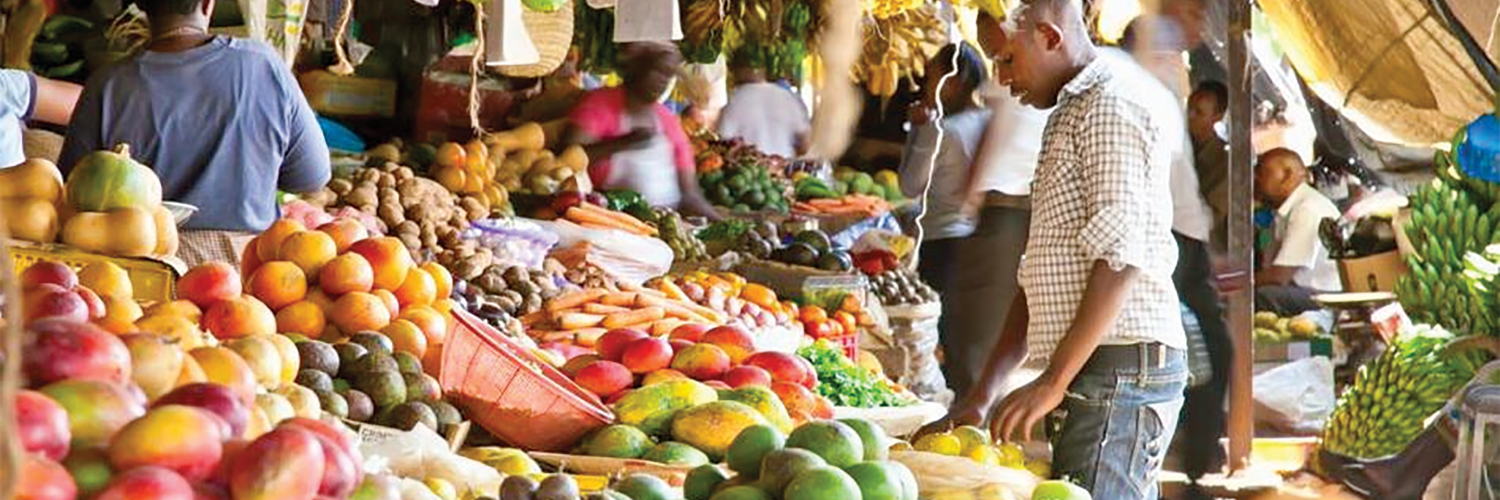STAPLE: A holistic approach to addressing food security on the continent imperative…
By Ansa Heyl
The African continent faces a multitude of challenges, and food security is among the most pressing. New research by an international team of researchers sheds light on the challenges and opportunities facing the African continent in securing sufficient food supplies with a particular focus on rice.
Africa has seen a significant increase in the consumption of rice as a staple food. The demand for rice has – in fact – experienced a fourfold increase, rising from approximately 10 million metric tons (Mt) to 40 Mt between 1990 and 2018. This surge in demand can be attributed to rapid population growth and changes in dietary preferences.
Despite some progress in improving yields, Africa’s rice production has not kept pace with the rising demand, leading to a growing reliance on imports for meeting the continent’s rice needs. Consequently, African nations have been adopting rice self-sufficiency policies and development strategies to mitigate related vulnerabilities.
While there is a general agreement that an increase in extreme weather events or climatic anomalies is a much bigger threat to future food security than gradual climate changes, the majority of studies to date have focused on the latter. This hinders their utility in policymaking and does not provide a full picture of the issues at stake.
Meanwhile, the vulnerability of Africa to local or external supply shocks – and how this is challenged in the future is rarely mapped out, even though this has been detrimental in the past.
To address these issues, researchers developed a unique modelling framework that allows a consistent way to analyse the effects of gradual climate change and the corresponding year-to-year anomalies on future rice consumption, thereby accounting for the specific import-dependent context of the African continent, where climatic anomalies are also propagated through trade. The resulting study, published in Nature Food today, unveiled critical insights into the future of the African rice system and the challenges it faces, highlighting the urgent need for robust policies that consider socioeconomic and climatic factors to ensure food security and resilience in Africa.
“We wanted to explore how African rice production and consumption dynamics will develop under future socioeconomic and climatic futures when also considering year-to-year effects and the strong import-dependency of the continent. Although we restricted ourselves to rice, this framework could also be applied in different contexts,” explains study lead author Koen De Vos, a guest researcher in the IIASA Biodiversity and Natural Resources Program who is also associated with the University of Leuven (KU Leuven) in Belgium.
“Apart from our results, it is particularly the methodology we used that is novel. Our study presents an innovative methodological framework that allows for the assessment of consumer responses to year-to-year climatic anomalies, including those occurring in providing regions,” adds IIASA Biodiversity and Natural Resources Program Director, Petr Havlík, one of the study’s coauthors.
The results show that socioeconomic developments have a more substantial influence on rice availability in Africa compared to gradual climate change. However, climatic anomalies pose a significant threat to the stability of rice consumption. Consumer responses to anomalies are of much larger magnitude than those to gradual changes. For instance, in the Economic Community of West African States (ECOWAS) region, gradual climate change leads to a maximum 2 percent increase in rice prices, while negative climatic anomalies could result in price increases of up to 30 percent.
In addition, the findings indicate that rainfed production systems are more vulnerable to climatic anomalies than irrigated production systems, and that regions relying on self-production are not immune to consumption shocks, as they are more susceptible to local climatic variations. Conversely, regions dependent on imports are vulnerable to foreign climate variability.
The research also revealed unexpected results, as the minor effects of gradual climate change were initially surprising. However, the researchers explain that these findings can likely be attributed to CO2 fertilisation offsetting negative effects on rice productivity and the capacity of the model they used to account for management adaptations. The shift observed from rainfed to irrigated systems under climate change indicates that shifting to irrigation is an efficient adaptation strategy.
The researchers caution against relying solely on rice self-sufficiency measures as a robust solution to enhance resilience against consumption shocks. The persistence of local climatic anomalies makes it imperative to diversify supply sources and improve storage capacities. Moreover, the authors advocate for agricultural development, emphasizing the efficiency of shifting from rainfed to irrigated systems to enhance resilience to climate change and climatic shocks such as droughts. However, this transformation must be undertaken sustainably and accompanied by improved access to credit and water resources.
In conclusion, the researchers emphasise the necessity of adopting a holistic approach to modelling future food systems, especially with a view on meeting the targets of the Sustainable Development Goals (SDGs) – in particular SDG 2, which is about creating a world free of hunger by 2030.
They highlight the importance of integrating socioeconomic developments and climatic changes within the context of global change, and urge policymakers and stakeholders to consider these insights to inform future assessments and policymaking efforts.
- The article is sourced from the International Institute for Applied Systems Analysis (IIASA), of which Heyl is their communications. The scientific institute conducts research into the critical issues of global environmental, economic, technological, and social change that we face in the twenty-first century.
CAN WE KEEP UP WITH THE PACE OF TECHNOLOGICAL CHANGE?
CONUNDRUM: Technology must support human agency, not replace it…

By S’phiwe Motha
We need to be aware of the fact that autonomous systems can reduce or eliminate the need for human involvement in some tasks.
Today’s ever-advancing artificial narrow intelligence (ANI) tools – for instance, search engines and digital “agents” such as Siri are not close to reaching the goal of human-like artificial general intelligence (AGI).
They are, however, continually becoming more powerful – thanks to developments in machine learning and natural language processing and advances in materials science, networking, energy-storage and hardware capabilities.
ANI is machine intelligence that equals or exceeds people’s abilities or efficiency at a specific task. For years, code-based tools in robots and other systems have performed repetitive tasks like factory-floor assembly activities.
Today, these tools are quickly evolving to master human traits such as reason, logic, learning, task-performance and creativity. Today’s smart, networked, software-equipped devices, cars, digital assistants and platforms, such as Google search and Facebook social mapping, accomplish extremely complex tasks. The systems underpinning today’s global financial markets, businesses, militaries, police forces, and medical, energy and industrial operations are all dependent upon networked AI of one type or another.
In all of this one big question remains: what is the future of humans in an age of accelerating technological change?
Many experts in this canvassing said that as AI advances human autonomy and agency are at risk. They note that decision-making on key aspects of life is ceded to code-driven tools. Individuals who function in this digital world sacrifice, to varying degrees, their independence, right to privacy and power over choice.
Many of the experts who worry about this say humans accede to this in order to stay competitive, to participate socially and professionally in the world, to be entertained and to get things done. They say people hand over some control of their lives because of the perceived advantages they gain via digital tools – efficiency, convenience and superior pattern recognition, data storage, and search-and-find capabilities.
The impact of AI in our lives – whether AI will make our lives better depends on how it is implemented. Many current AI systems (including adaptive content-presentation systems and so-called recommender systems) try to avoid information and choice overload by replacing our decision-making processes with algorithmic predictions.
True empowerment will come from these systems supporting rather than replacing our decision-making practices. This is the only way we can overcome choice/information overload and at the same time avoid so-called ‘filter bubbles.’ For example, Facebook’s current post ranking systems will eventually turn us all into cat video watching zombies, because they follow our behavioural patterns, which may not be aligned with our preferences. The algorithms behind these tools need to support human agency, not replace it.
It is up to us how we utilise AI, as it can have a negative and positive impact on our lives.
*Motha is the manager of Bop Radio































